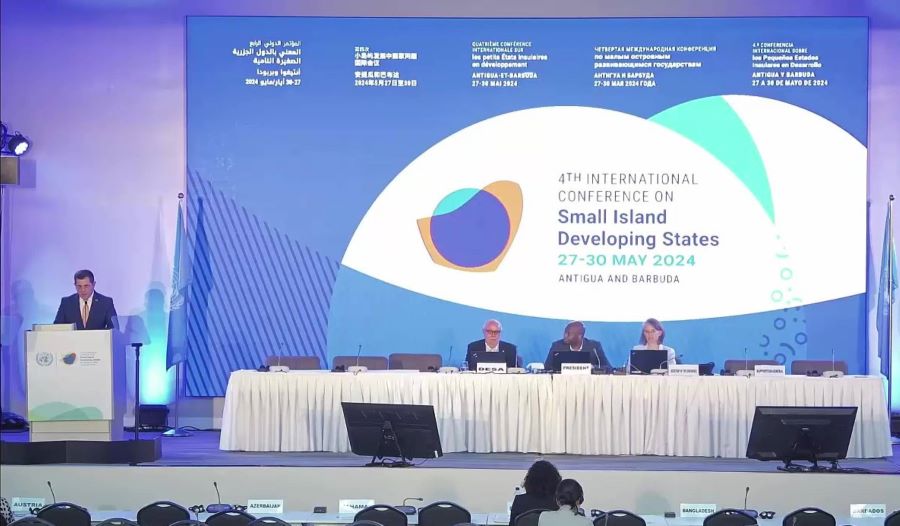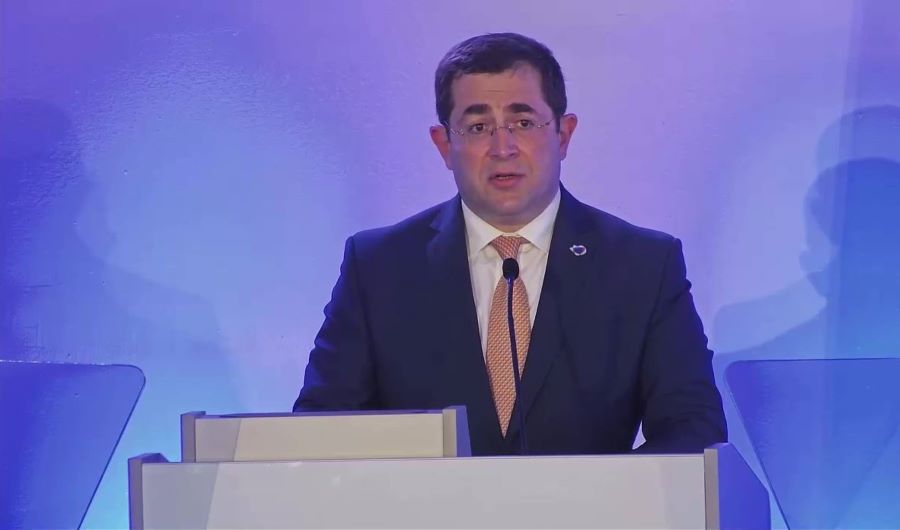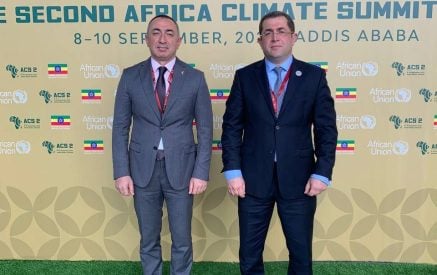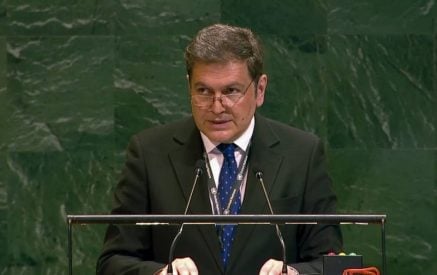Statement by H.E. Ambassador Mher Margaryan, Permanent Representative of Armenia to the UN, at the General Debate of the Fourth International Conference on Small Island Developing States
Mr. President,
Excellencies,
Distinguishes delegates,
I would like to congratulate the Government of Antigua and Barbuda for the successful organization of the Fourth International Conference on Small Island Developing States and to express gratitude for the warm hospitality.
In times of interlinked crises that have significantly undermined development efforts and progress in many parts of the world, there is an urgent need for renewed attention to the challenges faced by the countries in special situations.
Read also
Armenia welcomes the adoption of the Antigua and Barbuda Agenda for SIDS – a Renewed Declaration for Resilient Prosperity. This landmark initiative signifies an important step in reinforcing global commitment and solidarity for advancing the sustainable development agenda. It marks a pivotal moment for mobilizing international efforts to tackle climate change, foster economic diversification, strengthen institutional capacities, and promote technology transfer for Small Island Developing States (SIDS).

I would like to acknowledge the important role of the United Nations Office of the High Representative for the LDC, LLDC, and SIDS and the Department of Economic and Social Affairs in promoting the agenda of countries in special situations.
As a landlocked developing country, Armenia fully recognizes and shares many of the developmental challenges faced by the countries with unique structural constraints, including in the context of climate change, environmental degradation, and natural disasters. Exploring the untapped potential for synergies and collaboration between Small Island Developing States (SIDS) and Landlocked Developing Countries (LLDCs) can pave the way to addressing many of the common challenges related to barriers to trade, digital connectivity, and sustainable development.
Mr. President,
Armenia has consistently worked to emphasize the imperative of addressing the pressing needs of countries facing exceptional circumstances by fostering a global environment, where every nation can achieve sustainable development through targeted and tailored policies and support. Strong, inclusive and effective multilateral institutions are essential to this end.
It is in line with this approach that, in the framework of the United Nations Educational, Scientific and Cultural Organization, Armenia has co-initiated the creation of the Group of Friends of Small Island Developing States, as a platform to advance the SIDS agenda within the UNESCO and to promote dialogue, exchange and cooperation. With Armenia’s active involvement, the Group of Friends of Small Island Developing States has made significant contributions to the adoption of the “2023-2029 UNESCO Operational Strategy for SIDS” during the General Conference of the Organization, which was held last year. The Strategy represents a comprehensive framework designed to support SIDS in their efforts to achieve progress across various sectors, including education, science, and culture, and to enhance their impact within UNESCO.
Mr. President,
Within the United Nations Development System, Armenia will actively seek to advance efforts in support of more targeted and innovative financial mechanisms aimed at investing in and developing low-carbon, resource-efficient, resilient, and socially inclusive green economies. Regular and meaningful dialogue within the Economic and Social Council will be indispensable in facilitating effective, sustainable, and equitable financing strategies that align with the commitments outlined in the Addis Ababa Action Agenda.
Mr. President,
While not on an island, Armenia shares many vulnerabilities with small island states due to its geographic and climatic challenges. Only a few days ago, Armenia experienced firsthand the harsh consequences of extreme weather events, as unprecedented and torrential rainfall resulted in severe flooding and landslides affecting several communities in the Lori and Tavush regions of Armenia. This disaster has caused significant damage to infrastructure, homes, and livelihoods, demonstrating once again the urgent need for robust disaster preparedness and response strategies. As we work tirelessly to mitigate the effects of this natural disaster, we appreciate and value the assistance and solidarity of our international partners.
The flood in Armenia was not an isolated incident but part of a worrying pattern driven by the changing climate. It is a stark reminder that climate change is not a distant threat, but a current reality that demands immediate and concerted action. For a landlocked developing country, the consequences of such threats are profound, affecting all aspects of sustainable development.
Our experience underscores the necessity of enhancing the disaster preparedness and response measures. However, national efforts alone are insufficient. We call for more robust international cooperation to effectively address the impacts of climate change and to help protect the lives and livelihoods of those most vulnerable.
Armenia reaffirms the commitment to fostering cooperation, solidarity, and partnerships in advancing the development agenda of all countries in special situations, also, through the sharing of knowledge, technology, and best practices. By working together, pooling our resources, and exchanging knowledge we can work to address the unique structural challenges and to ensure that no country is left behind. We stand ready to strengthen our international partnerships with SIDS and other stakeholders to help achieve progress in this regard.
I thank you.


























































